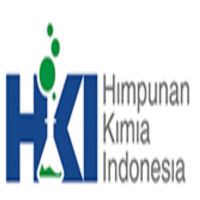SOCIOSCIENTIFIC ISSUES AS A PEDAGOGICAL APPROACH TO FOSTER SCIENTIFIC ARGUMENTATION IN BIOPLASTIC PRODUCTION USING SUGARCANE BAGASSE
Abstract
Keywords
Full Text:
PDFReferences
Acar, O., & Patton, B. R. (2012). Argumentation and Formal Reasoning Skillsin an Argumentation-Based Guided Inquiry Course. Procedia - Social and Behavioral Sciences, 46(December 2012), 4756–4760. https://doi.org/10.1016/j.sbspro.2012.06.331
Arikunto, S. (2013). Prosedur Penelitian Suatu Pendekatan Praktik. Jakarta: PT Rineka Cipta.
Dawam Abdullah, A. H., Firdiana, B., Nissa, R. C., Satoto, R., Karina, M., Fransiska, D., Nurhayati, Agusman, Irianto, H. E., Priambudi, P., Marliah, S., & Ismadi. (2021). Effect of Κ-Carrageenan on Mechanical, Thermal and Biodegradable Properties of Starch–Carboxymethyl Cellulose (Cmc) Bioplastic. Cellulose Chemistry and Technology, 55(9–10), 1109–1117. https://doi.org/10.35812/CelluloseChemTechnol.2021.55.95
Diouf, G. (2019). Millenium Development Goals (Mdgs) and Sustainable Development Goals (Sdgs) in Social Welfare. International Journal of Science and Society, 1(4), 17–24. https://doi.org/10.54783/ijsoc.v1i4.144
Grooms, J. (2020). A Comparison of Argument Quality and Students’ Conceptions of Data and Evidence for Undergraduates Experiencing Two Types of Laboratory Instruction. Journal of Chemical Education, 97(8), 2057–2064. https://doi.org/10.1021/acs.jchemed.0c00026
Hosbein, K. N., Lower, M. A., & Walker, J. P. (2021). Tracking Student Argumentation Skills across General Chemistry through Argument-Driven Inquiry Using the Assessment of Scientific Argumentation in the Classroom Observation Protocol. Journal of Chemical Education, 98(6), 1875–1887. https://doi.org/10.1021/acs.jchemed.0c01225
Istiana, R., Herawati, D., Nadiroh, N., & Angga Mahendra, P. R. (2019). Efektivitas Problem-Based Learning Terhadap Keterampilan Argumentasi Mahasiswa Tentang Isu Sosiosaintifik Lingkungan. Edusains, 11(2), 286–296. https://doi.org/10.15408/es.v11i2.14290
Kalsum, U., Robiah, R., & Yokasari, Y. (2020). Pembuatan Bioplastik Dari Ampas Tahu Dan Ampas Tebu Dengan Pengaruh Penambahan Gliserol Dan Tepung Maizena. Jurnal Distilasi, 5(2), 34. https://doi.org/10.32502/jd.v5i2.3031
López-Fernández, M. del M., González-García, F., & Franco-Mariscal, A. J. (2022). How Can Socio-scientific Issues Help Develop Critical Thinking in Chemistry Education? A Reflection on the Problem of Plastics. Journal of Chemical Education, 99(10), 3435–3442. https://doi.org/10.1021/acs.jchemed.2c00223
Mammino, L. (2019). Roles of Systems Thinking within Green Chemistry Education: Reflections from Identified Challenges in a Disadvantaged Context. Journal of Chemical Education, 96(12), 2881–2887. https://doi.org/10.1021/acs.jchemed.9b00302
Nairfana, I., & Ramdhani, M. (2021). Karakteristik Fisik Edible Film Pati Jagung (Zea mays L) Termodifikasi Kitosan dan Gliserol. Jurnal Sains Teknologi & Lingkungan, 7(1), 91–102. https://doi.org/10.29303/jstl.v7i1.224
Nida, S., Marsuki, M. F., & Eilks, I. (2021). Palm-Oil-Based Biodiesel in Indonesia: A Case Study on a Socioscientific Issue That Engages Students to Learn Chemistry and Its Impact on Society. Journal of Chemical Education, 98(8), 2536–2548. https://doi.org/10.1021/acs.jchemed.1c00244
Owens, D. C., Herman, B. C., Oertli, R. T., Lannin, A. A., & Sadler, T. D. (2019). Secondary science and mathematics teachers’ environmental issues engagement through socioscientific reasoning. Eurasia Journal of Mathematics, Science and Technology Education, 15(6). https://doi.org/10.29333/ejmste/103561
Prayogi, R. D. (2020). Kecakapan Abad 21: Kompetensi Digital Pendidik Masa Depan. Manajemen Pendidikan, 14(2), 144–151. https://doi.org/10.23917/jmp.v14i2.9486
Rahayu, Y., Suhendar, S., & Ratnasari, J. (2020). Keterampilan Argumentasi Siswa Pada Materi Sistem Gerak SMA Negeri Kabupaten Sukabumi-Indonesia. Biodik, 6(3), 312–318. https://doi.org/10.22437/bio.v6i3.9802
Ritonga, P. C., Putri, S. A. E., Setiawan, E., Pramaysella, A. D., & Puyanggana, C. K. B. (2023). Efektivitas Ekstraksi Selulosa Tandan Kosong Kelapa Sawit Sebagai Absorben Menggunakan Metode Delignifikasi Dan Bleaching. Jurnal Teknologi Pertanian, 24(3), 149–156. https://doi.org/10.21776/ub.jtp.2023.024.03.1
Ross, A. D., Yerrick, R., & Pagano, T. (2019). Examining the Use of Scientific Argumentation Strategies in Deaf and Hard-of-Hearing Learning Contexts to Teach Climate Science [Chapter]. ACS Symposium Series, 1327, 75–95. https://doi.org/10.1021/bk-2019-1327.ch006
Rostikawati, D. A., & Permanasari, A. (2016). Rekonstruksi bahan ajar dengan konteks socio-scientific issues pada materi zat aditif makanan untuk meningkatkan literasi sains siswa. Jurnal Inovasi Pendidikan IPA, 2(2), 156. https://doi.org/10.21831/jipi.v2i2.8814
Sadler, T. D., Romine, W. L., & Topçu, M. S. (2016). Learning science content through socio-scientific issues-based instruction: a multi-level assessment study. International Journal of Science Education, 38(10), 1622–1635. https://doi.org/10.1080/09500693.2016.1204481
Stanford, C., Moon, A., Towns, M., & Cole, R. (2016). Analysis of Instructor Facilitation Strategies and Their Influences on Student Argumentation: A Case Study of a Process Oriented Guided Inquiry Learning Physical Chemistry Classroom. Journal of Chemical Education, 93(9), 1501–1513. https://doi.org/10.1021/acs.jchemed.5b00993
Subarkah, C. Z., Rahmawati Sg, R., & Dalli, A. (2016). Internalizing Islamic Values in Electrochemistry Learning. Jurnal Pendidikan Islam, 2(2), 270. https://doi.org/10.15575/jpi.v2i2.790
Sugiyono. (2017). Metodologi Penelitian Kuantitatif, Kualitatif dan R & D. Alfabeta.
Sunarya, R. R., Gustini, N., Subarkah, C. Z., & Halimah, D. (2022). Argument Driven Inquiry (ADI) in Chemistry Learning: Enhancing Student’s Argument Skills and Attitudes toward Chemistry. AIP Conference Proceedings, 2468(December). https://doi.org/10.1063/5.0102783
Sunarya, R. R., Hijriansyah, R., & Aisyah, R. (2024). Implementation of Problem Solving-Based Electron Configuration E-Modules to Improve Student Learning Outcomes. Jurnal Pendidikan Kimia Indonesia, 8(1), 11–20. https://doi.org/10.23887/jpki.v8i1.70029
Sunarya, R. R., Listiawati, A., & Subarkah, C. Z. (2023). Voltaic cell test: Android-based assessment instrument on multiple representation oriented. AIP Conference Proceedings, 2572. https://doi.org/10.1063/5.0118627
Thorpe, A., & Garside, D. (2017). (Co)meta-reflection as a method for the professional development of academic middle leaders in higher education. Management in Education, 31(3), 111–117. https://doi.org/10.1177/0892020617711195
Walker, J. P., Van Duzor, A. G., & Lower, M. A. (2019). Facilitating Argumentation in the Laboratory: The Challenges of Claim Change and Justification by Theory. Journal of Chemical Education, 96(3), 435–444. https://doi.org/10.1021/acs.jchemed.8b00745
Wati, A. F. E., Sari, M. S., & Suhadi, S. (2023). Improving Undergraduate Students’ Argumentation Skills Through Problem-Based E-Module with Socio-Scientific Issues Topics. Bioedukasi, 21(2), 87. https://doi.org/10.19184/bioedu.v21i2.39596
Whiteker, G. T. (2019). Applications of the 12 Principles of Green Chemistry in the Crop Protection Industry. Organic Process Research and Development, 23(10), 2109–2121. https://doi.org/10.1021/acs.oprd.9b00305
Wilkinson, I. A. G., Reznitskaya, A., & D’Agostino, J. V. (2023). Professional development in classroom discussion to improve argumentation: Teacher and student outcomes. Learning and Instruction, 85, 101732. https://doi.org/10.1016/J.LEARNINSTRUC.2023.101732
Wilsa, A. W., Susilowati, S. M. E., & Rahayu, E. S. (2017). Problem Based Learning Berbasis Socio-Scientific Issue untuk Mengembangkan Kemampuan Berpikir Kritis dan Komunikasi Siswa. Journal of Innovative Science Education, 6(1), 129–137.
DOI: http://dx.doi.org/10.22373/lj.v13i1.30333
Refbacks
- There are currently no refbacks.
Copyright (c) 2025 Medina Fasya Salsafitri, Risa Rahmawati Sunarya, Imelda Helsy, Iis Dahriah

This work is licensed under a Creative Commons Attribution 4.0 International License.
INDEXED IN

